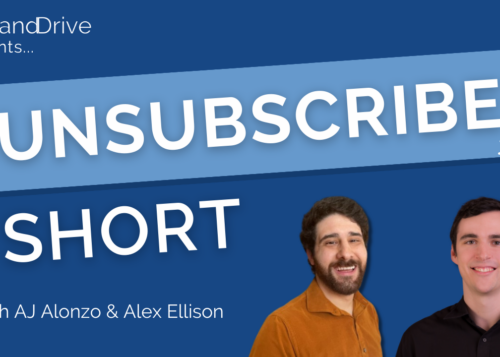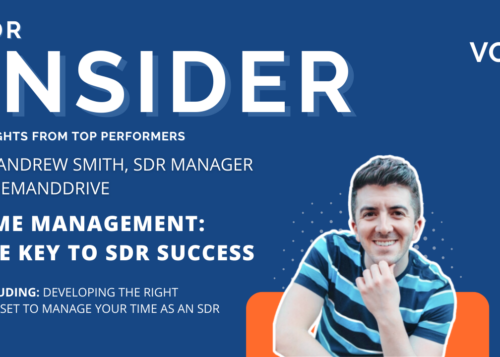Time Management Skills

UNSUBSCRIBE (short)
Join AJ and Alex as they recap the finer points from our SDR Symposium on Time Management.
Highlights
⏱️ Importance of power hours for various tasks, not just calling prospects
🔁 Using evidence to create an efficient agenda for productivity
💡 Experimentation and habit-building to determine optimal working times
📞 Adapting working hours to align with prospect engagement times
⚖️ Balancing time management with consideration for team collaboration and dynamics
Our Q3 symposium focused on time management.
It’s a topic that can mean so many different things to different people.
…which is why we’ve talked about it a handful of times already. The nuances and depth of time management are varied and deep, so we loaded up another symposium to help our SDRs learn the necessary tactics to master this skill.
Key Takeaways
Power Hours…Aren’t Just For Dialing
For most sales reps, the idea of a “power hour” isn’t foreign. You block off your calendar for an hour during the day and do nothing but call during that block. It’s a great way to minimize distractions and up your focus, allowing you to get a large amount of outbound dials done in a short period.
But one of our panelists had a different take on the idea – build power hours for non-calling activities. Tasks like account mapping, messaging refresh, and other administrative work can also benefit from an hour of uninterrupted work.
Their mantra of “Let me set aside an hour to be as productive as possible in an area where I’m struggling” really hit home for our panel and AJ & Alex.
Understand How To Build Good Habits
Time management involves a lot of experimentation. And for SDRs, a lot of that experimentation will revolve around when they’re most productive // when their ICP is most likely to answer the phone (not mutually exclusive things).
The best SDRs will collect data around metrics like quality connects, pick-up rates, and prospect disposition to find out their ideal prospecting window (also known as ‘Golden Hours’). Then, they build their schedule around that time to maximize their chances of connecting with and having positive conversations with their prospects.
The process of finding and protecting those Golden Hours is a key component to solid time management skills and will serve you for the rest of your career.
Figure Out What Works For You
If you want to block your calendar and have every minute of your day accounted for, that’s great! If you try that out and it doesn’t work for you, that’s ok! Not all of this advice will work for everyone.
At the end of the day, time management is about using evidence to create an efficient agenda for yourself. If you finish the work that needs to be done every day without feeling burnt out or stressed over time, you’ve got a good thing going. At the end of the day, you want your calendar to work for you – and not the other way around.







